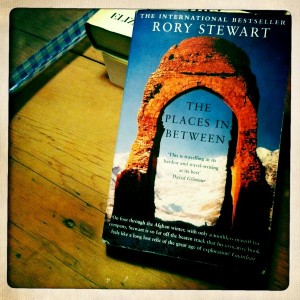I give up. An iPhone case that tries to pretend that your phone is actually a vintage screw Leica.
The Mask
Sensation! Experts find that increased prices reduce demand!
From today’s Guardian:
The increase in tuition fees to a maximum of £9,000 a year has led to a “clear drop” in the number of English students applying for university places this autumn, an independent analysis of the impact of the coalition’s controversial reform has found.
There are 15,000 “missing” applicants who might have been expected to have sought a place on a degree course this academic year but did not, according to the Independent Commission on Fees.
Well, you don’t say.
Pictures from an exhibition
Arles, July 2012.
A renaissance of reading?
Hmmm… I’m not entirely surprised by this Guardian report. I’ve noticed that teenagers of my acquaintance who have Kindles are definitely reading more. An interesting way-point on the journey to a new ecosystem.
Underlining the speed of change in the publishing industry, Amazon said that two years after introducing the Kindle, customers are now buying more ebooks than all hardcovers and paperbacks combined. According to unaudited figures released by the company on Monday, since the start of 2012, for every 100 hardback and paperback book sold on its site, customers downloaded 114 ebooks. Amazon said the figures included sales of printed books which did not have Kindle editions, but excluded free ebooks.
In a surprise move in May, the company went into partnership with the UK’s largest bricks-and-mortar books retailer, Waterstones.
Much to the consternation of the publishing industry, Amazon has refused to release audited figures for its digital book sales, something it does for printed books. It told the Guardian that the company would not discuss future policy on the matter.
The company said its figures also showed that British Kindle users were buying four times as many books as they were prior to owning a Kindle, a trend it described as a renaissance of reading.
“As soon as we started selling Kindles it became our bestselling product on Amazon.co.uk so there was a very quick adoption … [And they] are buying four times more books prior to owning a Kindle,” an Amazon spokeswoman said. “Generally there seems to be … a love of a reading and a renaissance as a result of Kindle being launched.”
So much for “the end of the book” complaint.
Why food tastes different in France?
C’est comme cela
Morning in a Provencal village.
Hypocrisy, cant and Afghanistan
I’ve just finished The Places In Between, Rory Stewart’s astonishing account of his walk across the remotest part of Afghanistan, from Herat to Kabul. For much of the time, I found myself marvelling that someone should put himself through so much pain — and into so much danger — to achieve an idealistic goal. It’s both entirely admirable and completely nuts.
But the strongest impression left by Mr Stewart’s tale is of the utter fatuity of the US/UK/Nato project in Afghanistan. His account of what life is actually like in the remote fastnesses of that wretched country is truly startling, at least to this uninformed Westerner. As another reader said to me, much of Afghanistan isn’t even a medieval society: it’s pre-medieval.
Stewart walked from village to village, on one of the most treacherous paths in the world. In some villages he was treated generously; in others the famed Muslim hospitality was, to say the least, grudging. Some people clearly contemplated killing him, for for various inscrutable reasons, didn’t. Most of the people he met were poor and illiterate, and obsessed with religion. But even in some of the poorest areas, there were serious discrepancies in wealth and status between villagers, most of whose lives were truly nasty, brutish and short. Women were effectively invisible (Stewart saw only a handful of them during the entire duration of his trip), marriage between first or second cousins seemed to be the norm, and some villagers had never even set foot in the next village along the path. Just about the only piece of modern technology that anyone had experienced was a Kalashnikov assault rifle.
Despite the remoteness of their locations, many of the people Stewart encountered had also been involved in a bewildering range of armed conflicts over the last few decades. In Dahan-e-Rezak, for example, he stayed in the house of the headman, one Seyyad Agha, who had been a military commander for twenty-four years:
“First, he had fought the Russians, with a group funded by Pakistani Intelligence, then, “because they weren’t killing enough people”, he had fought for a group partially funded by the British. Then the Russians withdrew and he fought the pro-Russian Najib government and the rival Northern Alliance groups. When the Taliban took over the province, five years ago, he decided, he said, to ‘retire from fighting’. This probably meant that he had been the Taliban commander in the area, but he would have denied it if I had asked.”
But Seyyad had a radio and as Stewart settled for sleep in the crowded guest house,
“someone put the BBC Dari service on the radio. Bill Gates was making a speech on American policy towards technology monopolies, which was being translated into Dari. The men listened intently. I wondered what these illiterate men without electricity thought of bundling Internet Explorer with Windows”.
Towards the end of the book, Stewart quotes a passage from the UN Assistance Mission for Afghanistan, the goal of which is “the creation of a centralized, broad-based, multi-ethnic government committed to democracy, human rights and the rule of law”.
The UN folks are — like the Development personnel from the various Western governments involved in Afghanistan — talented, hard-working, well-meaning people with university degrees in subjects like international law, economics and development. They come from middle-class backgrounds, work on high-minded policy proposals on ‘democratization’, ‘capacity building, ‘gender’, ‘skills training’ and ‘sustainable development’. The trouble is, says Stewart, that they know
“next to nothing about the villages where 90 per cent of the population of Afghanistan lived. They come from post-modern, secularised, globalized states with liberal traditions of law and government. It was natural for them to initiate projects on urban design, women’s rights and fibre-optic cable networks, to talk about transparent, clean and accountable processes, tolerance and civil society and to speak of a people ‘who desire peace at any cost and understand the need for a centralized multi-ethnic government’.”
Oh yeah? Ponder this:
“There were five if us in the guest room and for two hours we sat in silence. It was an overcast afternoon. Seyyed Umar sat by the large window, clicking his rosary. He shifted his head to look down at the black ridge, the mud below the river and the tracks in the snow. Occasionally he sighed or cleared his throat. Outside, a door creaked, a horse whinnied. Half an hour later, two ragged men came up the hill with donkeys and the children of the village threw snowballs at them. The men who were exhausted and at the end of their day’s journey smiled.
Seyyed Umar and the others could not work in the fields because of the snow; they had lived here together since they were children; nothing had happened recently that was worth talking about and they were illiterate so that they could not read. They waited in silence throughout the long afternoon for the call to prayer, dinner, and bed.”
Given the reality — the utter hopelessness of any attempt to turn this vast, pre-medieval country into even the crudest approximation of a coherent state by throwing money and armed force at it — the windy cant our politicians spout whenever they visit British troops in Afghanistan is truly nauseating. They are even preparing to do a deal with the Taliban, the elimination of whom was the ostensible justification for the US/UK intervention in the country. To date, 422 young British men and women have paid with their lives for the hypocrisy of our political elite. And many more will die before this farce is finally brought to an end.
Postscript: Rory Stewart is now a member of that aforementioned political elite — as MP for Penrith and the Border. Despite this, he’s still talking sense about Afghanistan. Trouble is: nobody in government is listening.
Dinner time?
Noam Chomsky: the purpose of education
My favourite wise old bird. Lovely moment late in the interview where he tells a story about a famous MIT physicist being asked by a Freshman “what are we going to cover this semester?”
“It doesn’t matter what we cover”, replies the academic. “What matters is what you discover.”







